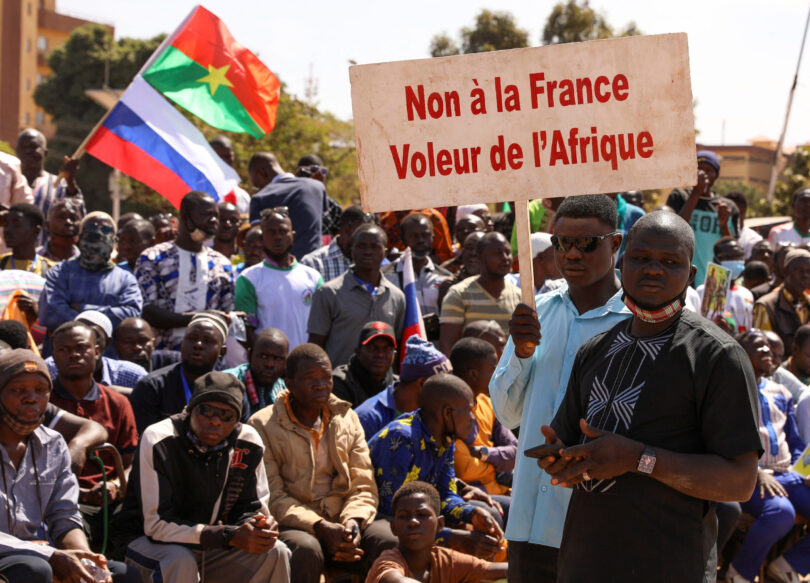Ben Armbruster
The Sahel entered 2023 in bad shape. The kidnapping of more than 50 women near Arbinda, Burkina Faso, on January 12 and 13 is just one indication of how insecure many parts of the region are. (The wo-men were subsequently f-reed, although much ab-out the episode remains unclear.)
There are no easy fixes for the Sahel. Even the occasional bright spots, such as the signing of a peace agreement between different ethnic communities in part of western Niger on January 21, underscore the region’s many vulnerabilities. Peace, where it occurs, often proves fragile and patchy.
Politically, meanwhile, American and other international policymakers can already look ahead to difficult dilemmas in 2024. Next year, three ongoing political transitions in the region will come due as military regimes in Mali, Burkina Faso, and Chad face deadlines to organize elections and hand power back to civilians.
Each transition, however, confronts threats from at least three directions — m-ilitary regimes’ propensity to extend their own power, the possibility of coups from the junior ranks, and the challenges posed by armed rebels. Meanwhile, relatively peaceful and stable Senegal will hold a presidential election, with incumbent President Macky Sall potentially seeking a controversial third term. Niger — the hub for much of the French and American military presence in the region — will likely face increasing strains.
Amid the turbulence, Washington needs a strategy that keeps the door open, diplomatically, without ina-dvertently abetting military regimes or enabling civilian overreach. Washington also needs to continue to differentiate itself from France, which is increasingly loa-thed across the region. For the moment, American dip-lomats are charting a balan-ced course by neither emb-racing nor antagonizing the Malian and Burkinabè juntas, but there does not appear to be a robust strategy for the medium term.
In Mali, a group of colonels seized power in 2020, then staged a second coup in 2021, and ultimately refused to honor their initial 18-month timetable for returning power to civilians. That deadline would have landed in February 2022, but the Malian junta defied the Economic Community of West African States (ECOWAS), the region’s diplomatic bloc. In late 2021, Mali’s military rulers floated the idea of a transition that would have lasted through 2026 — ECOWAS balked and imposed sanctions, and the two sides ultimately compromised on a transition lasting through 2024.
But Malian authorities are already suggesting that the current calendar is not sacrosanct, beginning with the possible delay of a constitutional referendum planned for March.
In Burkina Faso, another colonel conducted a coup in January 2022, and ended up agreeing with ECOWAS on a transition timetable running through 2024. That colonel was in turn overthrown in September 2022. Burkina Faso’s new ruler, Captain Ibrahima Traoré, has promised to respect the 2024 timeline. Traoré has proven popular with many ordinary Burkinabè citizens, but an alleged coup plot against him, revealed by his government in December, shows how shaky his position is. And should his position solidify, Traoré could well follow his Malian peers in asserting that exceptional circumstances require him to postpone elections.
In Chad, the military regime that came to power in April 2021 has been cozier with Paris and Washington than have the regimes in Mali and Burkina Faso; Chad’s regime took power unconstitutionally, but it is effectively a continuation of the system established by Idriss Deby, who ruled Chad from 1990 to 2021; the current regime is headed by his son Mahamat, who organized the 2021 coup immediately upon Idriss Deby’s death in a fight against rebels.
The transition in Chad, initially slated to expire around October 2022, has already been extended. Meanwhile, Chadian authorities have cracked down on dissent, including in an October 2022 massacre of pro-democracy demonstrators. Chad has had its own murky alleged coup plot, also this past December, although authorities asserted that the reported plot was led by a prominent human rights activist, a story that bears greater scrutiny.
In all three countries, the transitions scheduled for 2024 could be delayed, placing ECOWAS, the African Union, and others back at square one. Sanctions have borne few fruits, and there is limited regional and international bandwidth for sustained and cohesive diplomatic pressure. Meanwhile, “transitions” could turn out to be superficial — there is a high probability that Mahamat Deby will run in the eventual elections in Chad, and a similar scenario is quite possible in Mali as well.
Judicious American pressure could help to signal to the three juntas that Washington cares about the quality and outcome of the transitions — a message that is likelier to land if Washington rhetorically de-emphasizes the question of combating jihadists and refrains from too much lecturing about Russia and China. The Sahel’s political and security problems are so intermeshed now that a straightforward fight against al-Qaida and Islamic State affiliates is no longer possible; the road to solving the region’s crises runs first through sorting out politics at the center of each country, while supporting localized peacemaking efforts as a placeholder and a harm mitigation strategy.
France and, ironically, Russia are now both learning that a counterterrorism-centric strategy is ultimately unsustainable in the Sahel. For France, eight years of a Sahel-wide counterterrorism mission called Operation Barkhane yielded a list of “eliminated” jihadists — but also yielded substantial unpopularity in Mali, Burkina Faso, and beyond.
Juntas have taken advantage of ordinary citizens’ suspicions of French motives and activities (suspicions partly fueled by Russian disinformation, but predating and extending well beyond Russia’s propaganda efforts) to pose as populists by expelling French forces and tearing up military accords, as Burkina Faso did just this week.
Russia is eager to fill the gap, including through the deployment of the Kremlin-backed Wagner Group mercenaries (present in Mali, and possibly soon present in Burkina Faso, although the topic is hotly debated inside and outside the latter). Yet Russia is already discovering that the Sahel is challenging terrain, militarily and politically: Wagner Group personnel are killing a lot of civilians, but they are not making gains against jihadists.
In the long term, Wagner’s abuses and predations are likely to take the shine off Russia’s image, in some Sahelian citizens’ minds, as an anti-imperialist partner and an alternative to France; Russia is ultimately just another imperialist force in the region.
The United States will put its best foot forward in the Sahel if it functions not as a kind of “France lite,” offering military training without any accompanying political strategy, but instead concentrates on finding political openings in the region. That means convincing the civilian-led governments of the region not to inflame domestic tensions in ways that might lead to coups or unrest, and it means incentivizing the military regimes to give up power sooner rather than later.







